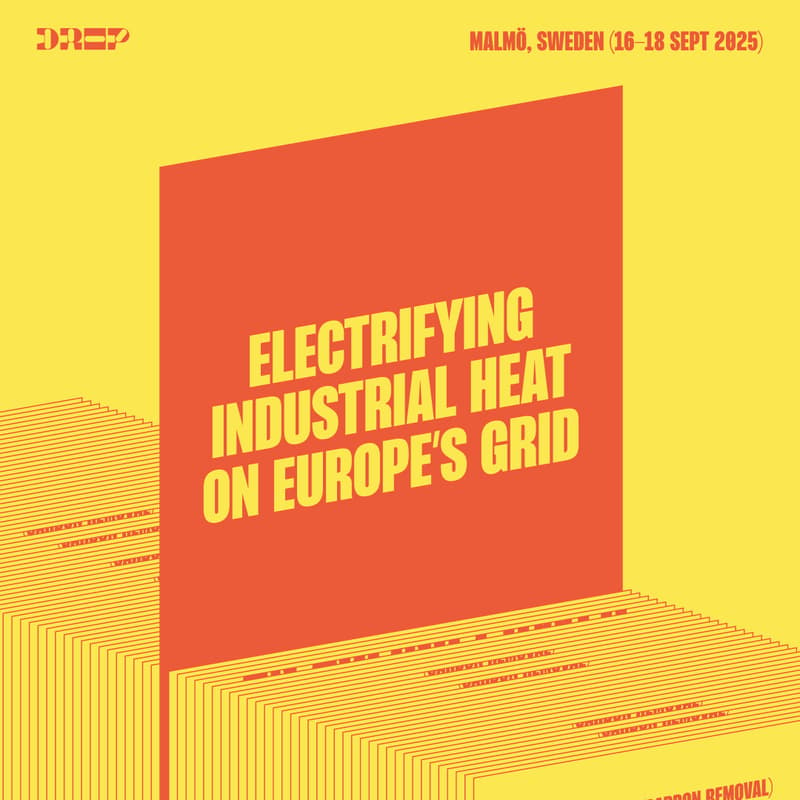

Electrifying industrial heat on Europe’s grid
Ripple Hosts
Thomas Nivard
360 Capital
Loic Raynal
EDF
TL;DR
Europe’s industry has to be developed and decarbonized, for sovereignty and climate reasons.
Good options are on the table, but they require investments and collaboration.
Topic overview
Why is the topic relevant?
Industry represents one of the top 4 CO2 emissions sectors globally, accounting for approximately 21% of worldwide greenhouse gas emissions and 18% in France. What makes industrial decarbonization particularly challenging is that the majority of its energy requirements involve high-temperature heating processes—often exceeding 1000°C—for critical applications such as steel production (1500-1600°C), cement manufacturing (1450°C), and chemical processing. These extreme temperatures have historically been achievable only through high emission fossil fuel combustion, and making direct electrification technically complex.
How Steel, glass, cement, aluminium production be electrified? What is the best path to match a startup’s timeline with industrial’s requirement of operations continuity and CAPEX allocation?
Europe finds itself in a unique position to lead this transformation, benefiting from abundant low-carbon electricity sources and serving as the birthplace of many pioneering industrial electrification technologies. From electric arc furnaces for steel production to innovative heat pump systems for industrial processes, there is now virtually no industrial sector that cannot theoretically be electrified. However, these emerging technologies remain largely at the pilot or demonstration stage, requiring significant scaling and optimization before achieving commercial viability.
The path forward faces substantial obstacles: technical development demands extensive time horizons and requires substantial capital investment, while many European funding mechanisms operate with limited investment capacity relative to the scale of transformation needed. Furthermore, strategic decisions remain to be made regarding which industrial processes should prioritize electrification versus alternative decarbonization; choices that will largely depend on evolving cost competitiveness and technological maturity. This complex landscape makes industry electrification both an urgent necessity and a strategic opportunity that requires coordinated action across technology development, financing, and policy frameworks.
What’s up for discussion?
The successful electrification of hard-to-abate industries requires unprecedented collaboration between corporates, venture capitalists, and strategic partners to establish robust decision-making frameworks that can identify and accelerate the most promising technologies. The complexity of industrial decarbonization demands a coordinated approach that aligns investment strategies with long-term transformation goals. During this panel, we will share and challenge existing investment frameworks specific to industrial electrification, exploring how different stakeholders evaluate technology readiness, market potential, and risk profiles in this emerging sector. We'll address the gaps between current funding mechanisms and the capital requirements for scaling breakthrough technologies, and hopefully some key corporates / innovators will share their strategic roadmap to shape the industrial energy demand by 2040
Dream outcomes
Establishment of a working group that continues beyond the Ripple event, fostering ongoing collaboration among entrepreneurs, VCs, corporates, and public stakeholders to advance the topic.
Initiation of concrete industrial projects involving Ripple participants, such as co-financing a First-Of-A-Kind (FOAK) disruptive technology, leveraging a hybrid financing approach combining venture capital and infrastructure investment by VCs, corporates and public actors.
Planting a transformative idea in participants’ minds (including ours) that inspires and accelerates progress in our respective industry decarbonization initiatives.
Who should attend?
VCs, Entrepreneurs, Industrials, Utilities / Energy corporates, research centers